Thought leadership: AR Metallizing interview with Tetra Pak
2020 has been unprecedented. The global outbreak of the Coronavirus has affected us all. Where service-based businesses have switched to remote working, for manufacturing industries like AR Metallizing, this hasn't been a possibility. Retaining staff on-site to run machinery has been crucial, especially so for those of us who have a part to play in manufacturing and delivering essential and consumable goods.
There was no way to plan for a pandemic or the subsequent turmoil from the Coronavirus. That said, some companies have led the charge with how to deal with a new reality. Quick decision making, socially remote working, adaptation of working practices, dealing with a turbulent economy and, perhaps surprisingly, unexpected opportunities have defined the winners of the past few months.
In a series of interviews with leaders in the industry, our CEO Bart Devos explores best practices, lessons learned and the innovative ways CEO's in the packaging, paper, converting and printing industry have tackled the Coronavirus.
This is the last and final article of AR Metallizing's thought leadership series.
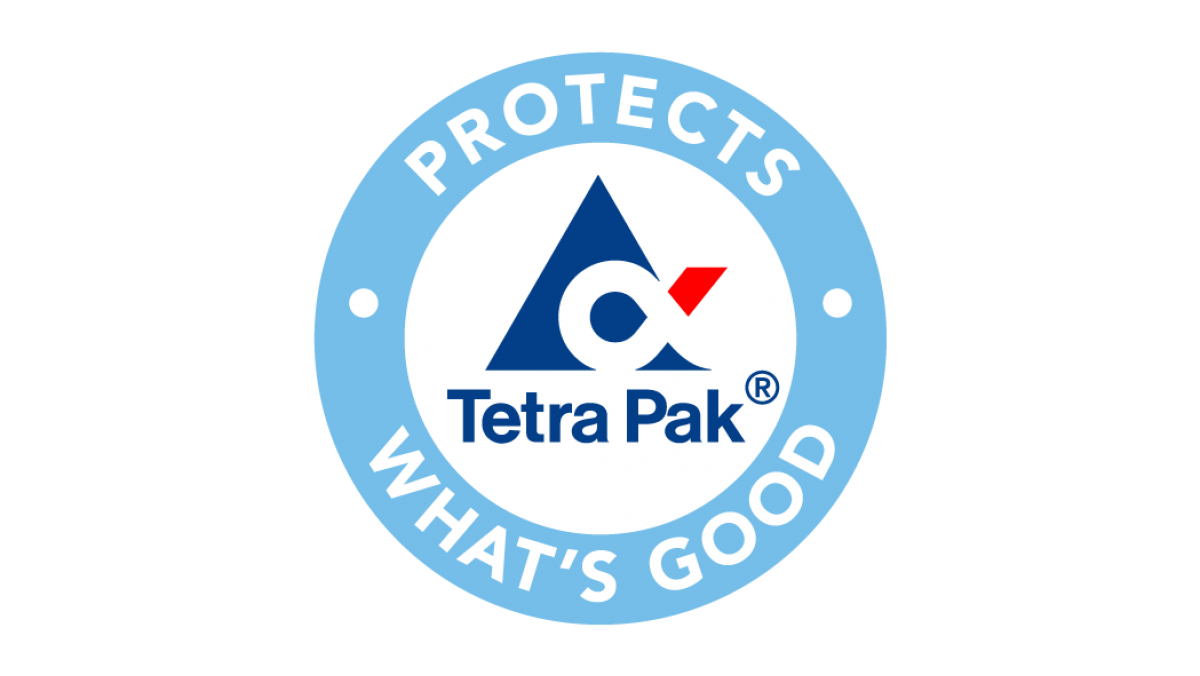
Introduction
Tetra Pak is a world leading food processing and packaging solutions company. Working closely with customers and suppliers, they provide safe, innovative, and environmentally sound products that each day meet the needs of hundreds of millions of people in more than 160 countries. With more than 25,000 employees around the world, the company believes in responsible industry leadership and a sustainable approach to business.
Tetra Pak’s promise, “PROTECTS WHAT’S GOOD™," reflects the company’s vision to commit to making food safe and available, everywhere. This thought is part of the firm’s DNA and so they have it embedded in their motto stamp. Stamped on more than 600 million carton packages a day – it influences everything the company does, not just the way it communicates, but also the way the employees carry out their individual roles. It represents Tetra Pak’s pledge to consistently deliver a valuably different product and service.

Anke Hampel was appointed to her current position Director Innovation & Sustainability Base Materials in October 2019. Anke joined Tetra Pak in 2017 as Commercial Director Foil & Ink.
Prior to joining the company, Anke held various management positions within Finance & Procurement at Procter & Gamble and Coty.
Based in Lausanne (Switzerland), Anke is German and has a master’s degree in International Business from California State University in the US & Dresden University.
During the pandemic: extraordinary commitments
The COVID-19 pandemic has transformed our lives dramatically. In the last few months, we have witnessed significant changes in our day to day activities, not only in our personal sphere but also the workplace where we spend most of our time. Like any other global organisation, for Tetra Pak, this meant adapting ways of working, and addressing a wide variety of topics, ranging from the health and safety of employees, to keeping them committed and motivated.
Right from the outset, the company’s priority was to protect people, starting with their own employees. Tetra Pak was one of the first companies in the world to initiate, together with their collaborators Sodexo and CBRE, a completely new hygiene and cleaning regime for all their facilities, in late January/ early February.
Anke noted that the firm's longstanding and strong commitment to hygiene was key. ‘These actions were quickly complemented by employee education campaigns to raise awareness of the possible transmission routes the virus may take, best-practice hygiene standards that we should follow to keep ourselves and our colleagues safe, restrictions on travel, strict quarantining, contact tracing, physical distancing regulations, and use of protective equipment. We have over 25,000 employees with sales in over 160 countries, each with their own specific requirements, emphasising the need for a balanced and flexible approach. With that in mind, we have been providing global guidance and frameworks to all our markets, to ensure our employees are well protected, based on our scientific understanding and medical advice received.’ The company is constantly assessing the risk levels in different countries (low, medium and high) based on the data (daily case rates, growth rates, death rates, recovery rates etc.) to ensure that decisions are proportionate, and can be sustained over time. Associated with each risk level is a series of protocols covering working from home, travel restrictions, hygiene procedures, visitor procedures, and so on.
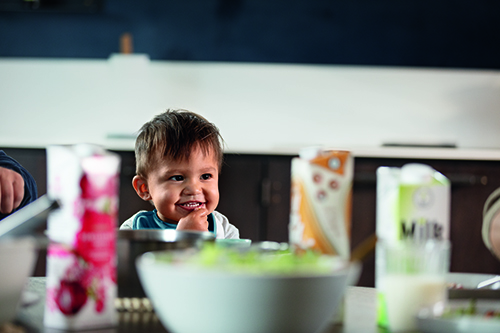
The company was identified as an essential business, and the global Tetra Pak team worked hard to ensure that this health crisis did not end up becoming a food supply crisis. The company activated its global business continuity plan to ensure that customers all around the world have an uninterrupted supply of products and services they need to produce food. Teams across business functions, and geographies have been mobilised, as well as externally with suppliers, global logistics partners and local authorities, to ensure that food and beverage manufacturers keep receiving shipments of raw materials, spare parts and components. In this way Tetra Pak has been able to overcome difficulties like spikes in demand, transport or border closures.
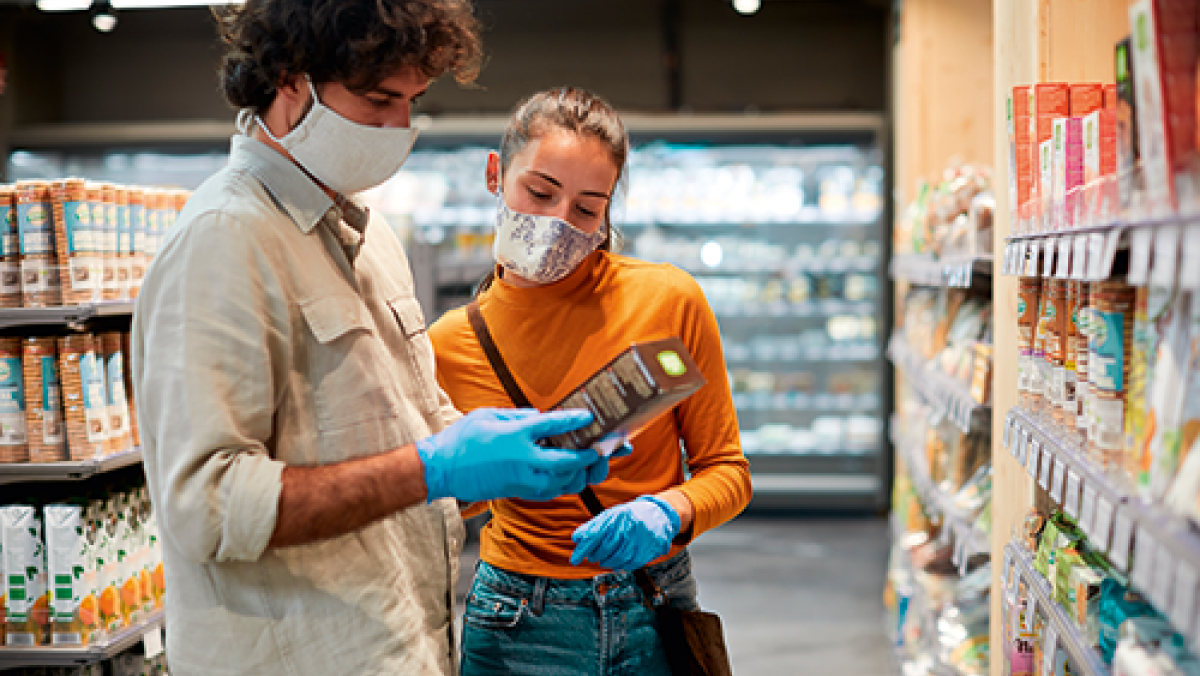
"We recognise the need for speed and agility"
Anke continues ‘We recognise the need for speed and agility, for example on services we are increasingly using digital technologies, such as virtual commissioning and remote installation, allowing us to be quicker in response time and to keep our customers’ operations running. We have seen some positive outcomes in Europe and Central Asia as a result. Physical distancing has also required us to rethink the way we interact with our customers and we have quickly transformed the way we work across many activities such as product development, product trials, ideation initiatives and workshops’.
Emerging trends
One of the major challenges Tetra Pak’s customers have been faced with due to the pandemic is the sudden change in consumption patterns and lifestyle trends. Anke explains ‘As people spend more time at home, eating in not out, supply and demand patterns are changing worldwide, and we are responding to this. There has been a huge rise in stocking up of basic foodstuffs, e-commerce has boomed, while food services like restaurants and cafes have been heavily hit.
In the near future we will need to look at the rise of “at home economy” activities and in-home consumption when considering family size, ambient and culinary products and – vice versa – potentially reducing portion packs and chilled products. But this will depend on our customers and market needs which we will continue to monitor and respond to’.
Anke also stressed that Tetra Pak has seen a significant uptake in their virtual services and solutions for its customers. Before the pandemic, take-up of Tetra Pak's virtual solutions (including virtual maintenance and installation) was gradual. Since March, however, there has been a significant increase in usage of these services, which includes providing customers with in-depth, real-time, virtual connections with engineers to support maintenance, training, upgrades, and installation.
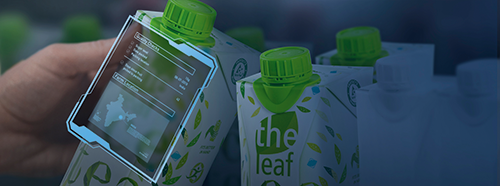
With an increased focus on health, hygiene and safety as fostered by the pandemic, few tools and solutions that the firm already had as part of its portfolio became even more appreciated by customers. For example, Tetra Pak has solutions which offer end-to-end traceability of the packaging supply chain. 'Consumers are more vocal about their desires, and part of this is that they're questioning what they're buying more openly in the context of health, convenience and sustainability. Consumers increasingly want to know that the firms they're buying from follow good standards and are responsible – not just in terms of a product, but more widely. This is clearly reflected by our latest Index – an in-depth, global consumer survey about what’s shaping the food and beverage industry, that we publish on a yearly basis. According to the research, consumers are much less sure about aspects of food safety that they can’t control. There is particular concern around how products are stored in stores or markets (43%), as well as industrial production (36%), packing (36%) and sourcing (34%). Also, respondents overwhelmingly hold manufacturers responsible for food safety (at 55%, way ahead of government, which comes next at 45%). However, there is relatively little trust in them as a provider of information on the subject. Besides end-to-end traceability solutions, this suggests an appetite for connected packages, allowing consumers to scan an on-pack QR code or similar to access a wealth of online information about the product’s provenance, environmental credentials, recycling points and so forth. While consumers in some markets have been slow to adopt such scanning, this has changed rapidly in the COVID-19 “touch-free” era,' says Anke.
Part of the shift going forward is likely to be even more interest in transparency and traceability in the supply chain. Anke says that some major players, including brands, have already moved fast to keep up with the new demands from consumers, introducing more traceability options. ‘Our Index highlights that, in the context of health and other concerns around food, consumers are looking for transparency as reassurance, with approximately 6 in 10 people saying they really care about how food and beverages are produced and want to know everything they can about the process. This suggests an opportunity for brands to provide more information about production methods and especially provenance – one of the strongest drivers of consumer purchasing decisions,’ she adds.
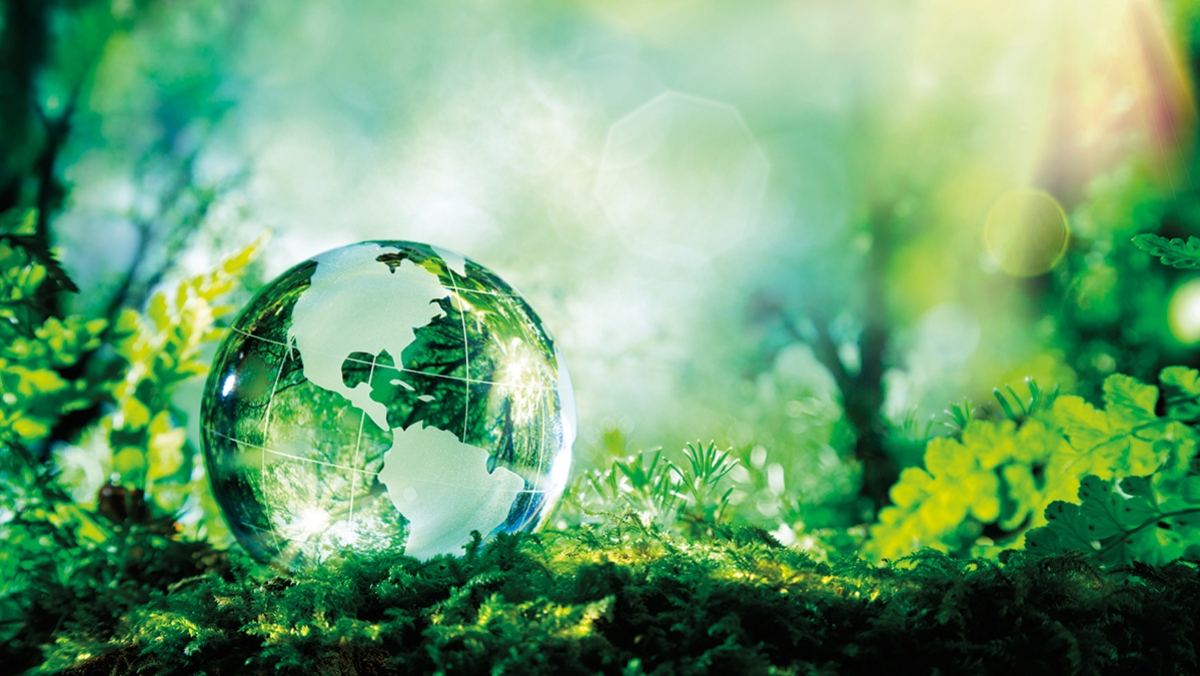
How has COVID-19 shaped sustainability?
Tetra Pak has long been known for its unrelenting commitment to sustainability, but how does Anke feel the pandemic has shaped sustainability trends in the packaging industry as a whole?
'At the beginning of the crisis, I was worried we'd see a sharp shift away from sustainability in the packaging industry. Happily, however, sustainability focus in the industry has continued despite economic challenges, and I don't think there's been a downshift of it as a core consideration. Rather the opposite. The Tetra Pak Index 2020 shows that, despite COVID-19 pushed it down the list of consumer priorities, concern for the environment remains strikingly powerful; it’s ahead of anything else, even economic issues. Also, food safety is recognised as a major issue for society: over two-thirds of respondents put it at level with the pandemic as a “real threat.” In addition, food waste is rising up the agenda and is now seen as a concern by more than three-quarters of respondents. These findings point towards a dilemma in the consumers’ minds as they try to balance the critical priorities of human existence through safe food and sustainability of the planet we live on,’ she describes.
Simultaneously, companies are also looking at their own value chains and making changes to improve sustainability. Anke comments 'The global food system accounts for 26% of global greenhouse gas emissions. Energy accounts for the majority of the emissions, but farming, processing and distribution of food has a significant climate footprint. We see the role of the food sector in tackling climate change to be even more important moving forward due to the growing population, the alarming figures about food waste and consumer appetite for climate-friendly solutions. As a company, we have identified three focus areas in terms of environmental challenges. The first is to mitigate climate change, where we as an industry need to minimise the impact of our products and operations on the climate. On this regard, in June this year, we have set an ambitious goal: to achieve net zero greenhouse gas emissions in our own operations by 2030, with a similar ambition across the value chain by 2050. The second is to advance the circular economy, which includes eliminating litter and waste as well as enhancing the recycling infrastructure. This is also being driven by legislation around the world, with a strong focus on single-use plastics. The third is to protect biodiversity. All three areas are key to initiatives that we have been pursuing for some time. They are priorities in the short and long term. In fact, they are inextricably interlinked. In addressing climate change, we cannot ignore the materials impact and the role that packaging can potentially play. Nor is it enough to focus only on “reduce, recycle and reuse” when promoting circularity. Also, to be successful in this journey, collaboration is key. This is why we are proud to launch our ‘Join us in protecting the planet’ supplier initiative on December 4th, calling out twenty actions that our suppliers can focus on, working together with us, to drive the sustainability transformation.’
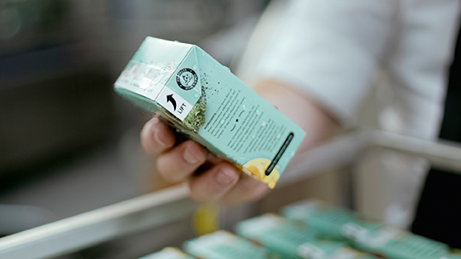
There are also new factors at play as a result of the pandemic – the benefits of balancing local and global supply chains, may well become the topic of a more prominent debate, Anke believes. Likewise, she highlights recent findings supporting a new perception of sustainability practices: from appealing environmental conscious consumers to acting as critical enablers for the longevity and long-term success of a company's business model. She adds ‘As part of this year’s Index we have investigated also consumers’ expectations of food and beverage companies. They now believe that “improving food safety” should be manufacturers’ number one priority, closely followed by “using sustainable packaging” and “limiting food waste”. More than half of consumers (58%) also think brands have a responsibility to society in relation to the COVID-19 crisis.”
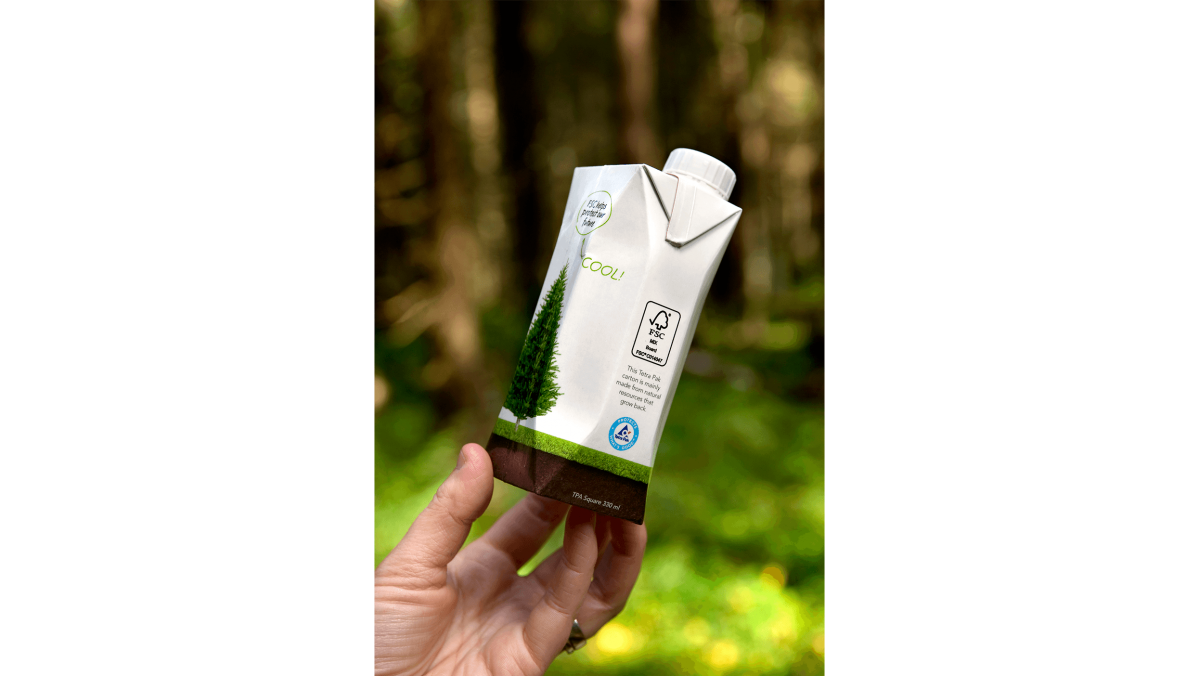
"Climate change is something that can be challenging for people to comprehend in a tangible sense [...]"
Anke underlines that the pandemic has created a new paradoxical landscape of consumer concerns and needs, where food safety, security and waste have become much more pressing issues, concern for the environment remains very strong and traditional boundaries are becoming increasingly blurred. 'Climate change is something that can be challenging for people to comprehend in a tangible sense. Food waste – as another example - has traditionally been seen as a “people” issue, tied to poverty, malnutrition and starvation, while now there is a growing awareness that food waste is an environmental challenge, too. In fact, if food waste were a country, it would be the world’s third largest emitter of emissions. With the pandemic, I think people are re-considering the link between the earth and our vulnerabilities as humans. The industry needs to address this dilemma, stepping up towards the twin goals of meeting the human need for food while protecting our planet’s ecosystem. This is where food packaging can play a strong role in bringing about harmony. Working closely with our customers and stakeholders, we are already on a journey to create the ultimate sustainable food package - a carton package that is made solely from responsibly sourced renewable or recycled materials, is fully recyclable and carbon-neutral, allowing ambient distribution and meeting food safety requirements. We see this as a critical step in building a sustainable future for the next generation, especially in the aftermath of COVID-19.'
Looking forward, Anke believes that the conversation around sustainable packaging will broaden, with different factors being considered. For example, could plant-based plastic be a sustainable replacement for fossil-based plastics when compared to the benefits of paper packaging? 'I think there will be more debate on these topics in the future, especially around how it's possible to perform life-cycle analysis between all these very different materials, and how we can create a standard analysis which can result in an equivalence between materials. Possibly this will include conversations around how each material fits into a circular economy. We'll probably see legislation on the circular economy start to take shape in the next couple of years, too.'
There are unlikely to be straightforward answers, with Anke noting that the environmental impact of different materials and sustainability benchmarks will be part of broader research and debate. 'Our ambition is for all our packages to use renewable or recycled polymers, or alternative fibre or cellulose-based materials, with no further extraction of fossil feedstock necessary. However, there is much work still to be done before renewable and recycled polymers can fully replace traditional fossil-fuel based polymers. In fact, renewable polymers are produced at an industrial scale, however demand outpaces supply. On the other side, recycled polymers for the applications used in Tetra Pak packages have not yet reached industrial scale. Worth noticing that we currently use the same responsible sourcing requirements for our plant-based polymers that we use with all our purchase categories. Beyond this, our supplier of plant-based polymer is working with ProForest, a world leader in supporting the sustainable management and sourcing of natural resources. Our supplier has also established a Bonsucro Chain of Custody from sugar cane plantation to their production facility for plant-based polyethylene. For a truly sustainable packaging value chain, we need more engagement and awareness on these wide-reaching discussions. I welcome fruitful, transparent and constructive conversations, I am sure they will prove critical also to help consumers understand more about sustainability, which will drive change in its own right,' she says in conclusion.